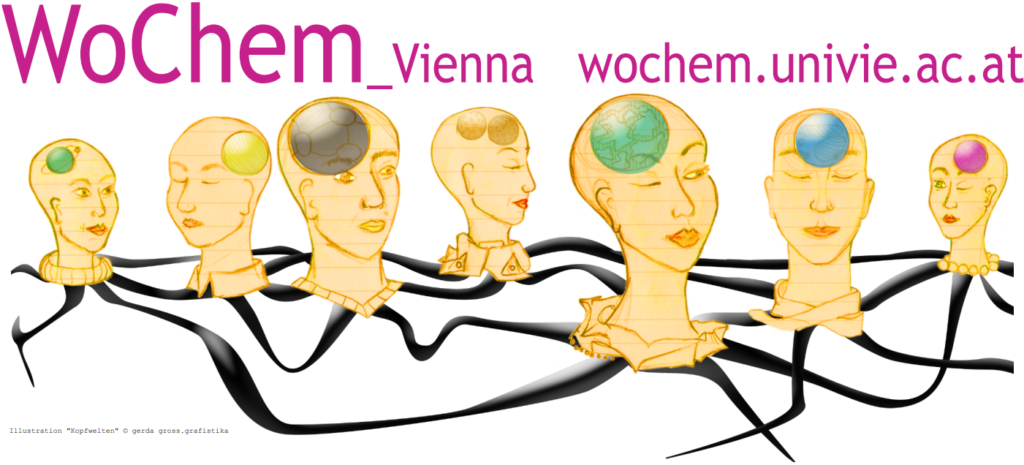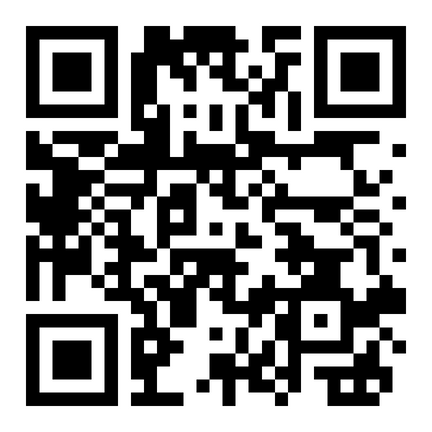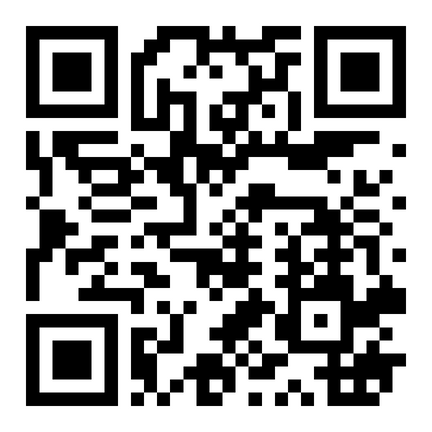WoChem is a network by and for young female researchers at the Faculty of Chemistry of the University of Vienna. We asked the WoChems Sabela and Evelyn about their thoughts, motivations, and aims. Sabela Vega Ces is a Ph.D. student at the Department of Organic Chemistry and joined WoChem as a member in 2023, contributing important ideas to the network, e.g., the posters about women chemists for this year’s International Women’s Day. Evelyn Rampler started an Assistant Professorship in Analytical Chemistry in March 2024 and has been on the WoChem coordination team for several years.

What does WoChem mean to you?
Sabela: Since I was 18, feminism has gained a huge relevance in my life. It helped me to understand many dynamics of society and made me realize how unfair the world was for us in many aspects…but activism gave me the desire and the tools to try to change it. For me, WoChem represents a platform where I can connect with other women and commit to feminism, trying to contribute with ideas, collaborate on projects and establish a safe space that inspires people to improve society.
Evelyn: I am convinced that successful research depends on the diversity within a research field. Although we have 2024, there is still a long way to go until we reach equality/equity for women and other underrepresented groups in the field of chemistry. In my opinion, networks are one of the most important tools to support women and unrepresented groups. For me, WoChem represents a network to support each other at the Faculty of Chemistry, a safe place where we can share experiences (good and challenging ones) and grow together!
Do you feel it is harder for women* to stay in academia/research and if so, how?
Sabela: It is generally difficult, for men and women, because it is a highly demanding and competitive world. However, women are more affected for two main reasons: the lack of referents and the poor work/life balance. Women need to make more sacrifices in their personal life having less real opportunities and support, as society we should promote female referents and ease the way to encourage women to achieve their professional goals.
Evelyn: The current academic system is based on many short-term contracts (#IchBinHanna) at the same time demanding maximum flexibility to move between countries. So basically, staying in academia is hard for everyone! However, women -and also other represented groups- face more systemic challenges, including unconscious bias with comments about their appearance and performance, they face double standards and microaggressions and often take on more emotional labour. In addition, women are credited less in science than men and there is still both violent and benevolent sexism. Additionally, if women decide to have a family, usually higher care duties (compared to men) are added on top of all these factors, making them less flexible to stay in the academic system. So we have a vicious cycle of gender bias in decisions leading to lower academic positions and lower productivity, visibility, and impact of women. All these reasons lead to the leaky pipeline effect, and we lose a significant number of women on the way to higher career levels.
What is your motivation to stay in research/academia?
Sabela: I consider it a very dynamic and enriching job where I am not only motivated for contributing to the scientific community, but also for finding myself in an inspiring environment where I challenge myself everyday and I can learn from very diverse and highly qualified people.
Evelyn: My research offers me to follow my curiosity and work on exciting topics in the field of Analytical chemistry within an inspiring environment. As an Assistant professor, I can combine both my research and teaching passions and can contribute to the positive development in our field. Collaborating with my students and partners fosters an environment of continuous growth and learning, which brings me immense satisfaction and fulfillment, far beyond a traditional 9-5 job. I love working alongside motivated students who share my enthusiasm for exploring novel mass spectrometry methodologies. Moreover, I hope that my role as supervisor and coordinator of various networks empowers me to build a more inclusive academic setting where individuals from underrepresented groups, including women, feel valued and supported in their professional journeys.
Are there things that changed since you started your studies in chemistry in regard to gender equality?
Sabela: Yes, definitely. I think we are progressing. In the past 10 years women have become more aware of the discrimination in our day to day life, and through feminism we have set networks of support and safe spaces to discuss and to strengthen our speech. Being louder and more determined about our boundaries has also led to being more listened to and considered by society in general.
Evelyn: When I started my studies, I never considered issues of inequality, as we were 50% women in my biotechnology studies. Reflecting on gender concerns was not part of our education, leading me to believe such issues were relics of the past. I was lucky to have a female role model in Prof. Gunda Köllensperger who provided support throughout my academic journey. Nonetheless, I experienced discrimination, and violent sexism during my PhD and PostDoc. At that time, I attributed them to my openness and did not talk about that in a professional setting. The #MeToo movement empowered women, myself included, to speak out, prompting universities to take action against abuse of power. For me, starting a family, besides my research career, was a huge challenge. Although I experienced a lot of comments about my double role, there was also immense support from different sides within the academic setting. Overall, the situation for women is slowly improving. But we cannot rest on this fact as we will only achieve gender parity by 2154 (as projected by the World Economic Forum in 2023) if we maintain the same speed. Hence, we need to raise awareness and increase our actions to support gender equality now! This is also the reason why women’s networks are so important to reflect on the gender equality challenge!
Is there a WoChem project (past or upcoming) that is especially important to you?
Sabela: I am very excited for the following months. We are focused on developing a series of events to point out and tackle the disregard of women. Many amazing female scientists, politicians, artists, philosophers have been silenced, contributing to the lack of referents nowadays. We want to stop this vicious cycle by upholding these stories and encouraging future generations.
Evelyn: I am very excited about our project on silenced women Sabela mentioned. For me, it is extremely important to work on our goal to raise awareness about women in research, tell our stories and talk about the challenges we still face. We are also working on a breastfeeding room for the Faculty of Chemistry to make it more flexible for women after maternity leave. I really enjoyed the International Women’s Day event in 2021, discussing gender equality in science and the need for passion, persistence, and perspectives. We streamed the Canadian film “Ms. Scientist” and had a panel discussion with the filmmaker Brandy Yanchyk, the special guest Hon. Kirsty Duncan (at the time Canadian Minister of Science), and Austrian specialists on the topic: https://wochem.univie.ac.at/news-events/int-womens-day-2021/
What is something you want to say to young (female*) students?
Sabela: I would like to encourage you to try your best. Keep pushing and fighting for achieving your goals, try to create community, find support, share your ideas and your experiences with other women. Avoid comparing yourself too much, vindicate occupying space; and be confident of who you are and where you want to end up eventually.
Evelyn: I can recommend my 3P strategy, developed on the basis of discussions with our WoChem network during International Women’s Day 2021:
- Passion: Go for an inspirational and supporting research environment!
- Perspective: Have your goals and role models! Don’t forget to go for a healthy work-life balance (saying no is an option and often essential) and stay open to adapt your goals on the way.
- Persistence: Don’t give up! Every challenge is a chance for change. If some obstacles are too big to handle alone, get help and stay motivated (return to your supportive environment). Mentors, networks, and family/friends are essential.
And maybe an additional comment on the perspective for students who are not sure whether to choose academia or industry after finishing their studies: Stay open and do not force yourself into one specific box, it is more about the work environment and tasks you are doing than the actual job title, and you can also try both!
You can find more information about WoChem and their upcoming events here:

